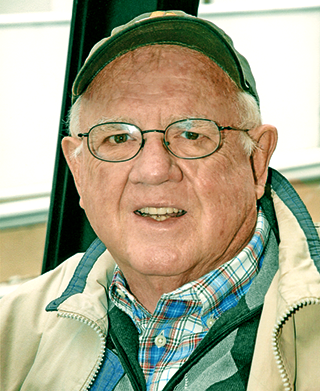In mid-July at the Belleville Research Center near Belleville, Ill., George Kapusta held his 32nd annual agronomy “dog-and-pony show.” A veteran no-till researcher and speaker at several of our mid-winter National No-Tillage Conferences, the Southern Illinois University (SIU) weed scientist plans to retire later this year.
What is interesting is not so much that Kapusta is retiring after 34 years at SIU and 6 1/2 years doing weed work at North Dakota State University, but his recent thoughts on how the agricultural chemical industry is changing. He will definitely be be missed by hundreds of farmers who relied on him for no-till cropping and weed control answers.
Chemical Company Concerns
“The weed control business is changing so much with all of these mergers that it’s less fun than it used to be,” says Kapusta. “When I first started, I dealt with 30 to 40 companies. Now it’s down to 10 or 12 firms and by the year 2000, I think only four or five companies will be left.”
Kapusta says this dramatic drop in chemical company numbers definitely bothers him. “So many of my former students are working for these companies and I wonder what will happen to them,” explains the winner of one of the 1997 National No-Till Innovator Awards sponsored by Zeneca Agricultural Products and No-Till Farmer. “It’s easy to lose sight of the fact that it’s these people who are the companies. If I was 25, 30 or even 40, that might not bother me so much. But as it is, I am ready to get out and let younger people take over.”
Yoga Berra Time. In some ways, Kapusta’s final field day was like Yogi Berra’s “deja vu all over again.” Weed control in corn and soybeans along with nitrogen management figured prominently in this year’s program, just as they did at the field day’s premiere 34 years ago. The big change is the amount of added importance being placed on no-till. “In that first program, we talked about soybean varieties well before the appearance of soybean sudden death syndrome and soybean cyst nematode,” explains Kapusta. “This year at the field day we had an update on soybean sudden death syndrome and soybean cyst nematode as well as information on white mold in no-till soybeans.”
Changing Of The Guard
Replacing Kapusta on the Carbondale, Ill., campus as an SIU agronomist will be Bryan Young, a University of Illinois-trained scientist. Kapusta’s colleague Edward Varsa will take over the Belleville research station. You can bet Kapusta will be plenty busy until Dec. 31 rolls around when he officially retires. “If they have questions, I’ll be available to answer them, but I’m not going to hang around and look over their shoulders to make sure things are being done right,” he explains.
What will Kapusta be doing in the new year after giving up a highly respected career that focused on no-till weed control? “For at least a short period of time, absolutely nothing,” he says with a chuckle. “My wife says I won’t be able to do that for long.”






